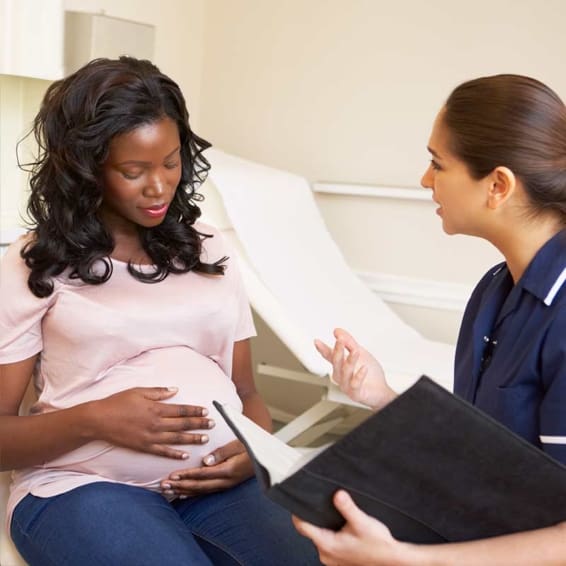
Cystic fibrosis (CF) is a genetic disorder. It causes thick mucus to collect in your lungs and intestines. This causes problems with breathing and digestion. The damage is permanent. CF gets worse over time. People who have CF have a shorter life expectancy. However, thanks to modern medicine, people who have CF are living longer, healthier lives than ever before.
Two parents who have the CF gene can pass it on to their baby. Children have a 25% chance of having CF if both parents have one copy of the gene. Your doctor may perform a prenatal screening to test for CF if both parents know they carry the gene. This is performed while you are pregnant. It checks for any health problems with your baby before they are born. The screening also can detect other genetic disorders. This includes birth defects, and neural tube defects.
Path to improved well being
At your first prenatal visit, your doctor will talk to you about screening and tests. Although they may offer suggestions, it is your choice to do the screenings or not.
Carrier screening
If you don’t know if you have or carry CF and would like to find out, you may choose to do carrier screening test first. This is a simple method to test you or your partner for the CF gene.
Your doctor will collect a blood, saliva, or tissue sample from inside your cheek. Carrier screening is done one person at a time. It can be done before or during pregnancy. The possible results are:
- You (or your partner) test negative as a carrier. The other person does not need to be tested.
- You (or your partner) test positive as a carrier. The other person should be tested.
- You and your partner both test positive as carriers. If you are pregnant, you should consider the prenatal testing to see if your baby has CF. If you are not pregnant but are trying, talk to your doctor about your options. You may consider adopting or using fertility treatment to avoid the CF gene.
Prenatal screening
Screening for CF in a baby can be done one of two ways.
- Chorionic villus sampling (CVS). Your doctor collects a sample of tissue from your placenta. This test is done between 10 and 13 weeks of pregnancy.
- Your doctor collects a sample from your amniotic fluid. This test is done between 15 and 20 weeks of pregnancy.
Diagnosis
If the prenatal screening is positive for CF, you have two options.
- You can continue with your pregnancy. The diagnosis does not affect ongoing prenatal care. In the remaining months, do research to learn more about CF. Talk to your doctor about treatment options. You may consider joining a support group.
- You can end your pregnancy. This decision consists of legal and moral considerations.
At your first prenatal visit, your doctor will talk to you about screening and tests. Although they may offer suggestions, it is your choice if you want to do the screenings or not.
Things to consider
Although screening can be helpful, it also can create added worry or concern. If you choose not to screen during pregnancy, most states check for CF during newborn screening. This is a series of tests your baby undergoes in the hospital after birth. These include blood, hearing, and heart tests. Talk to your doctor to see what your state’s testing includes.
Keep in mind that no screening is 100% effective. Carrier and prenatal screenings cannot check for all gene mutations. If the tests are negative, there still is a rare chance you carry CF or your baby could have CF. Talk to your doctor if:
- You and your partner both have CF.
- You and your partner are known carriers for CF.
- You and your partner have a family history of CF.
- You and your partner are pregnant or trying to become pregnant and want to learn more about genetic testing.
Questions to ask your doctor
- What are the risks and benefits of CF prenatal screening?
- Does my state test for CF during the newborn baby screening?
- If my partner or I test negative in the carrier screening, what is the chance our baby could still have CF?
- If we have a child with CF, what are the chances our other children will have CF?
- Are there other prenatal screening tests that I should consider?
Resources
American College of Obstetricians and Gynecologists: Cystic Fibrosis: Prenatal Screening
![]()
Copyright © American Academy of Family Physicians
This information provides a general overview and may not apply to everyone. Talk to your family doctor to find out if this information applies to you and to get more information on this subject.







